What Are Masonry Drill Bits Used For?

Masonry drill bits are a type of tool commonly used in construction and renovation projects. These specialized drill bits are designed specifically for drilling through tough materials such as concrete, brick, stone, or tile. They are made with a carbide or diamond tip, which gives them the strength and durability needed to successfully drill through these hard surfaces.
One of the main uses for masonry drill bits is in the installation of anchors or fasteners. When attaching something to a concrete wall or floor, such as a shelf, a picture frame, or a TV mount, it is important to have a solid anchor point. Masonry drill bits are able to create precise holes in the concrete to accommodate the anchors, ensuring a secure and stable attachment.
Masonry drill bits can also be used to create openings for pipes or wires in masonry walls. This is commonly seen in plumbing or electrical installation projects. By using a masonry drill bit, professionals can easily bore through the tough material, allowing for the proper placement of pipes or wires without compromising the integrity of the structure.
Additionally, masonry drill bits are useful in masonry repair and renovation projects. When repairing or replacing damaged bricks or stones, it is important to create clean and precise holes for inserting replacement pieces. Masonry drill bits make this process easier and more efficient, allowing for seamless repairs and renovations.
In conclusion, masonry drill bits are an essential tool in various construction and renovation projects. Whether it’s for installing anchors, creating openings for pipes or wires, or repairing masonry structures, these specialized drill bits provide the strength and precision needed to work with tough materials like concrete, brick, stone, or tile.
Overview of Masonry Drill Bits
Masonry drill bits are specially designed tools used for drilling holes into masonry materials such as concrete, brick, stone, and tile. They are distinct from regular drill bits, as they are specifically engineered to handle the hard and dense nature of masonry surfaces.
Masonry drill bits feature a carbide tip that is designed to withstand the extreme heat and pressure generated during drilling. This carbide tip is made from a combination of tungsten carbide and cobalt, which makes it incredibly strong and durable.
Masonry drill bits come in various sizes and shapes, depending on the specific drilling requirements. The most common types include the following:
- Percussion bits: These are standard masonry drill bits used for drilling holes in soft to medium masonry materials.
- Masonry core bits: These are hollow drill bits used for creating larger holes in masonry materials. They are commonly used for plumbing and electrical installations.
- SDS (Special Direct System) bits: These are specialized masonry drill bits that are compatible with SDS drills. They feature a unique shank design that allows for faster and more efficient drilling.
- Tile bits: These masonry drill bits feature a spear-like tip specifically designed for drilling holes in ceramic tiles and other delicate masonry surfaces. They minimize the risk of cracking or damaging the material.
When using masonry drill bits, it is essential to take certain precautions. Always wear protective gear such as safety glasses and gloves to protect yourself from flying debris. Additionally, ensure that the drill is set to the appropriate speed for the material being drilled to avoid overheating and damaging the bit.
Overall, masonry drill bits are indispensable tools for any construction or DIY project involving masonry materials. They provide the necessary strength and durability to efficiently drill holes in these challenging surfaces.
Benefits of Using Masonry Drill Bits
Masonry drill bits are specially designed to drill into hard materials such as brick, concrete, and stone. These bits have several benefits that make them essential tools for any construction or DIY project involving masonry:
1. Versatility:
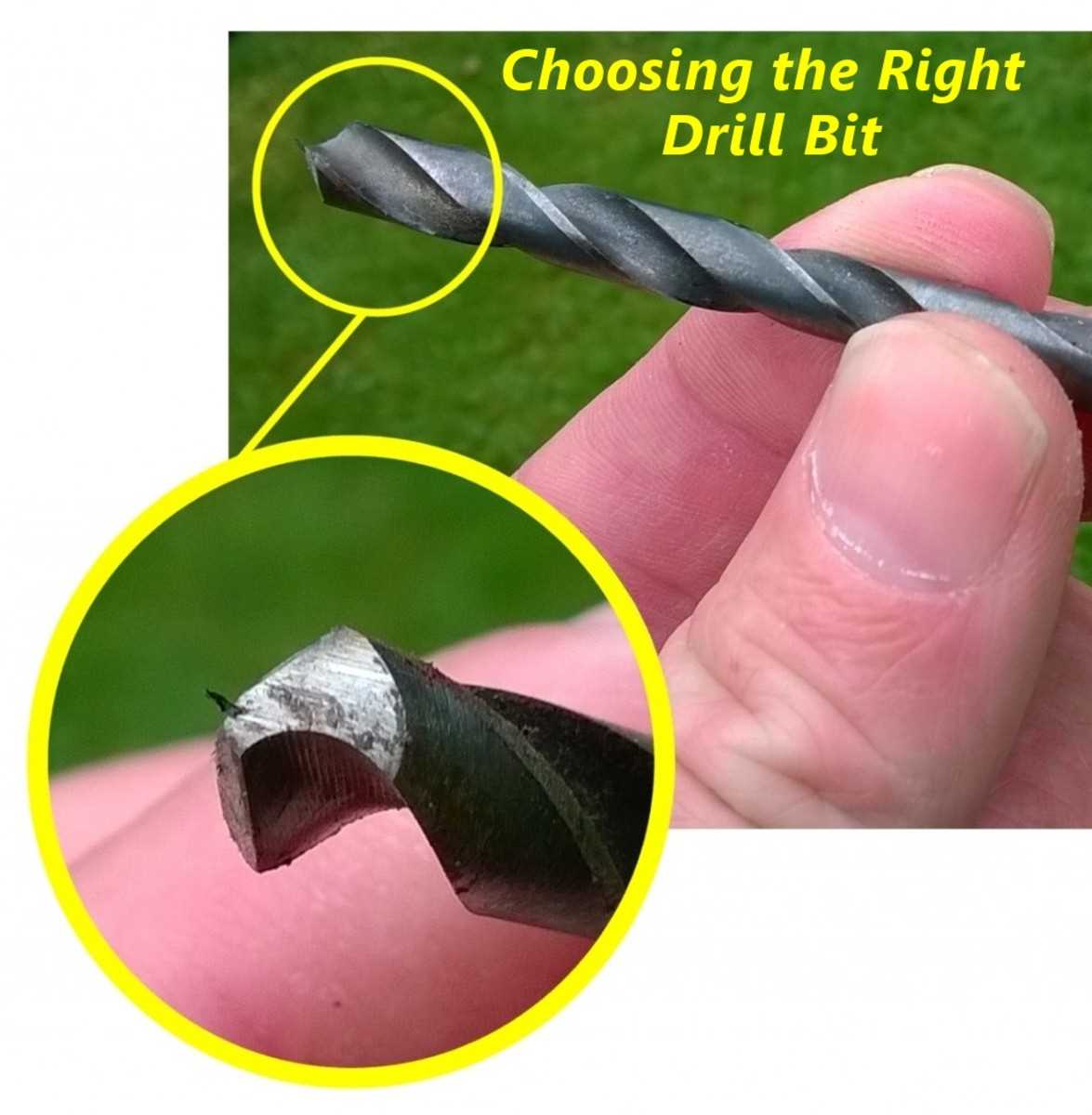
Masonry drill bits can be used with a variety of materials, including concrete, brick, stone, and tile. This versatility makes them a valuable tool for different projects, whether you are installing shelves, hanging pictures, or building a retaining wall.
2. Durability:
Masonry drill bits are made from high-quality materials such as carbide or diamond-tipped, which allows them to withstand the rigors of drilling into hard surfaces. These bits are designed to be long-lasting and can handle multiple uses without getting dull or breaking.
3. Precision:
Masonry drill bits have sharp, pointed tips that allow for precise drilling. This is particularly important when working with materials like concrete, where accuracy is crucial for ensuring secure and stable installations.
4. Fast Drilling:
Masonry drill bits are designed for efficient drilling into hard materials. The specially designed flute geometry and cutting edges of these bits allow for fast removal of material, reducing drilling time and making your projects more time-efficient.
5. Compatibility:
Masonry drill bits are compatible with most types of drills, including both corded and cordless models. This compatibility ensures that you can use these bits with the tools you already have, saving you the cost of purchasing additional equipment.
6. Reduced Chances of Damages:
Using a masonry drill bit reduces the chances of damaging the material you are drilling into. These bits are designed to create clean and precise holes without cracking or chipping the surrounding surface.
7. Wide Range of Sizes:
Masonry drill bits come in a wide range of sizes, allowing you to choose the right bit for your specific project. Whether you need to drill small pilot holes or larger holes for anchors or screws, there is a masonry drill bit available to suit your needs.
In conclusion, masonry drill bits offer versatility, durability, precision, fast drilling, compatibility, reduced chances of damages, and a wide range of sizes. These benefits make masonry drill bits an essential tool for any construction or DIY enthusiast working with hard materials.
Applications of Masonry Drill Bits
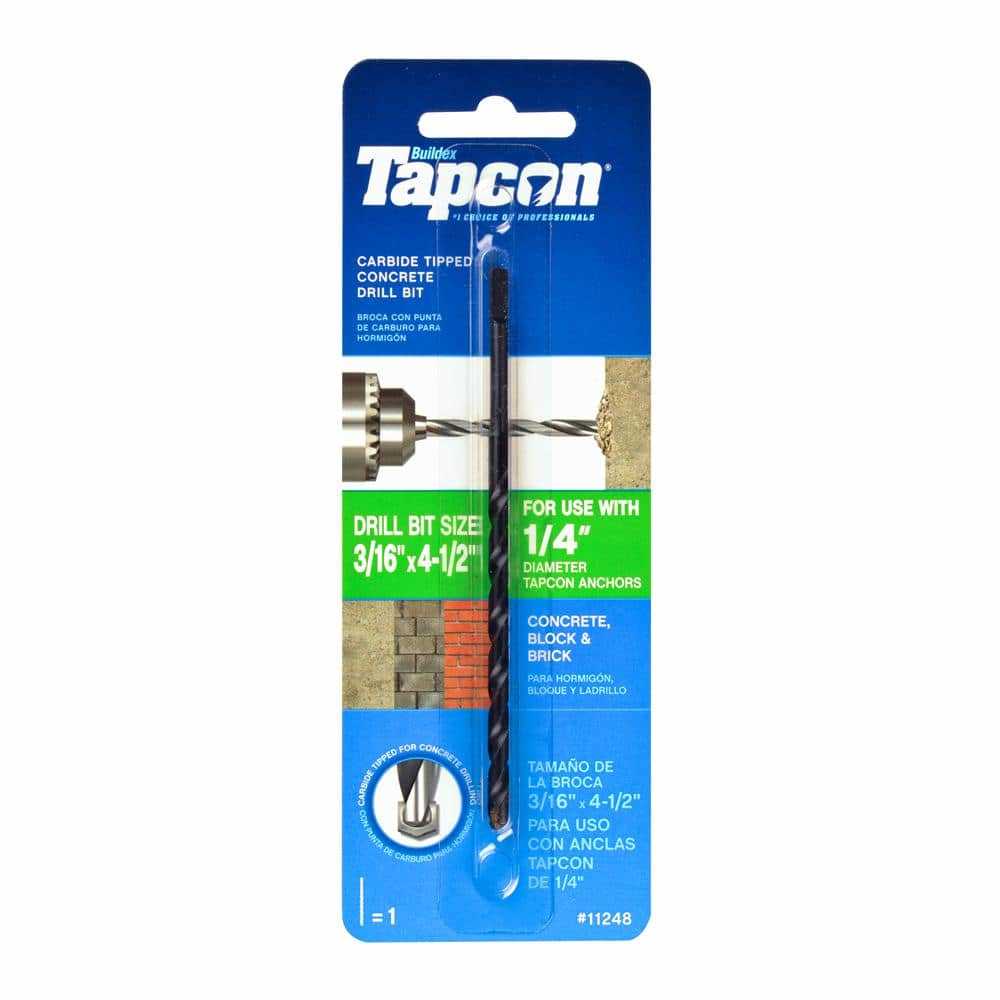
Masonry drill bits are specifically designed for drilling holes into hard materials such as concrete, brick, stone, and tile. They are commonly used in various construction and renovation projects. Here are some of the main applications of masonry drill bits:
1. Installing Anchors
Masonry drill bits are commonly used for installing anchors into hard materials. Anchors are used to secure objects to concrete or masonry surfaces. The drill bits create precise holes that allow the anchors to be inserted securely.
2. Hanging Shelves and Cabinets
When hanging shelves or cabinets on a wall, masonry drill bits are essential for creating the holes needed to install wall plugs or anchors. These holes ensure that the shelves or cabinets are securely attached to the wall.
3. Creating Plumbing Holes
Plumbers often use masonry drill bits to create holes in concrete or masonry walls for piping installations. These drill bits allow plumbers to create precise holes without damaging the surrounding materials.

4. Installing Electrical Wiring
Electricians also utilize masonry drill bits to drill holes in concrete or brick walls for running electrical wiring. These drill bits allow for accurate drilling, ensuring that the wiring is installed securely and safely.
5. Drilling Through Tiles
Masonry drill bits with a carbide or diamond tip are often used for drilling through ceramic or porcelain tiles. These drill bits prevent the tiles from cracking or chipping while creating clean and precise holes.
6. Creating Holes for Ventilation
When installing ventilation systems, masonry drill bits are used to create holes in concrete or masonry walls for ductwork. These drill bits ensure that the holes are the correct size and shape, allowing for proper airflow.
In conclusion, masonry drill bits have numerous applications in construction, renovation, and various other projects. They are indispensable tools for drilling precise and clean holes in hard materials, making them a must-have for any DIY enthusiast or professional tradesperson.
Choosing the Right Masonry Drill Bit
When it comes to drilling into masonry surfaces such as concrete, brick, or stone, having the right drill bit can make all the difference. A masonry drill bit is specially designed to handle the tough and hard nature of these materials, allowing you to create holes of various sizes and depths for a variety of applications.
Here are some factors to consider when choosing the right masonry drill bit:
- Material: Masonry drill bits are typically made from carbide, which is a hard and durable material that can withstand the demands of drilling into masonry surfaces. Carbide-tipped drill bits are known for their long-lasting performance and ability to maintain sharpness even after repeated use.
- Type of Masonry: Consider the type of masonry you will be drilling into. Different drill bits are designed for specific types of masonry, such as concrete, brick, or stone. Using the appropriate drill bit for the specific material will ensure efficient drilling and prevent damage to the drill bit or the material itself.
- Size and Depth: Determine the size and depth of the hole you need to create. Masonry drill bits come in various diameters, allowing you to drill holes of different sizes. Make sure to choose a drill bit that matches the size of the hole you need. Additionally, consider the depth of the hole and select a drill bit that is long enough to reach the desired depth.
- Drill Type: Masonry drill bits are compatible with different types of drills, such as hammer drills or rotary drills. It’s important to choose a drill bit that is suitable for your specific drill type to ensure efficient and effective drilling.
Remember to always follow proper safety precautions when using masonry drill bits. Wear protective eyewear and gloves, and be sure to secure the material you are drilling into to prevent any accidents or injuries.
By considering these factors and selecting the right masonry drill bit for your specific needs, you can ensure successful drilling into masonry surfaces and achieve your desired results.
How to Use Masonry Drill Bits
Masonry drill bits are designed specifically for drilling into materials such as concrete, brick, stone, and tile. If you need to create holes in these types of materials, using a masonry drill bit will provide you with the best results. Here is a step-by-step guide on how to use masonry drill bits effectively:
Step 1: Choose the Right Drill Bit
Before you start drilling, it’s essential to select the right masonry drill bit for your project. Masonry drill bits come in various sizes and shapes, so it’s important to choose one that matches the diameter and depth of the hole you need to make. Consider the type of material you’ll be drilling into as well.
Step 2: Prepare the Material
Before drilling, make sure the material is properly prepared. Clean the surface and remove any debris or loose particles that could obstruct the drilling process. You may want to mark the position of the hole with a pencil or tape for accuracy.
Step 3: Wear Safety Equipment
Always prioritize your safety when using power tools. Wear safety goggles to protect your eyes from flying debris, and consider wearing ear protection if the drilling will be loud. Gloves and a dust mask can also be beneficial.
Step 4: Secure the Material
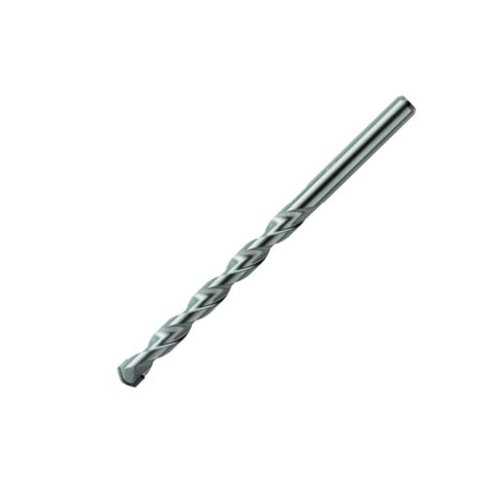
Depending on the size and type of material you’re drilling into, you may need to secure it in place before starting. Use clamps or other appropriate methods to hold the material steady. This will help prevent it from moving or vibrating while you drill.
Step 5: Set the Drill Speed
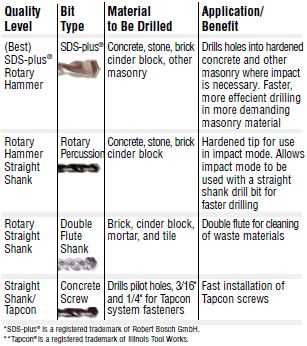
Set your drill to the appropriate speed for masonry drilling. Check the manufacturer’s instructions or consult the drill’s manual to determine the correct speed setting. Using the wrong speed can result in ineffective drilling or damage to the drill bit.
Step 6: Start Drilling
Position the drill bit on the marked spot and apply gentle pressure. Start drilling at a slow speed to ensure accuracy and control. As you begin to drill, gradually increase the speed while maintaining even pressure. Be patient and let the drill bit do the work, avoid forcing it or applying excessive pressure.
Step 7: Clear Debris
Periodically stop drilling and clear away debris from the hole. This can be done by removing the drill bit and blowing or brushing away the dust. Clearing debris will help maintain the effectiveness of the drill bit and prevent it from getting clogged.
Step 8: Withdraw the Drill
Once you’ve reached the desired depth, slowly withdraw the drill bit from the hole. Be cautious when doing this to avoid any damage or chipping to the material around the hole.
Step 9: Clean Up
After drilling, clean up any remaining debris and dust from the drilling process. Dispose of the waste material properly and store your drill bit in a safe place for future use.
By following these steps and using masonry drill bits correctly, you’ll be able to create accurate and precise holes in various masonry materials.
Tips and Tricks for Using Masonry Drill Bits
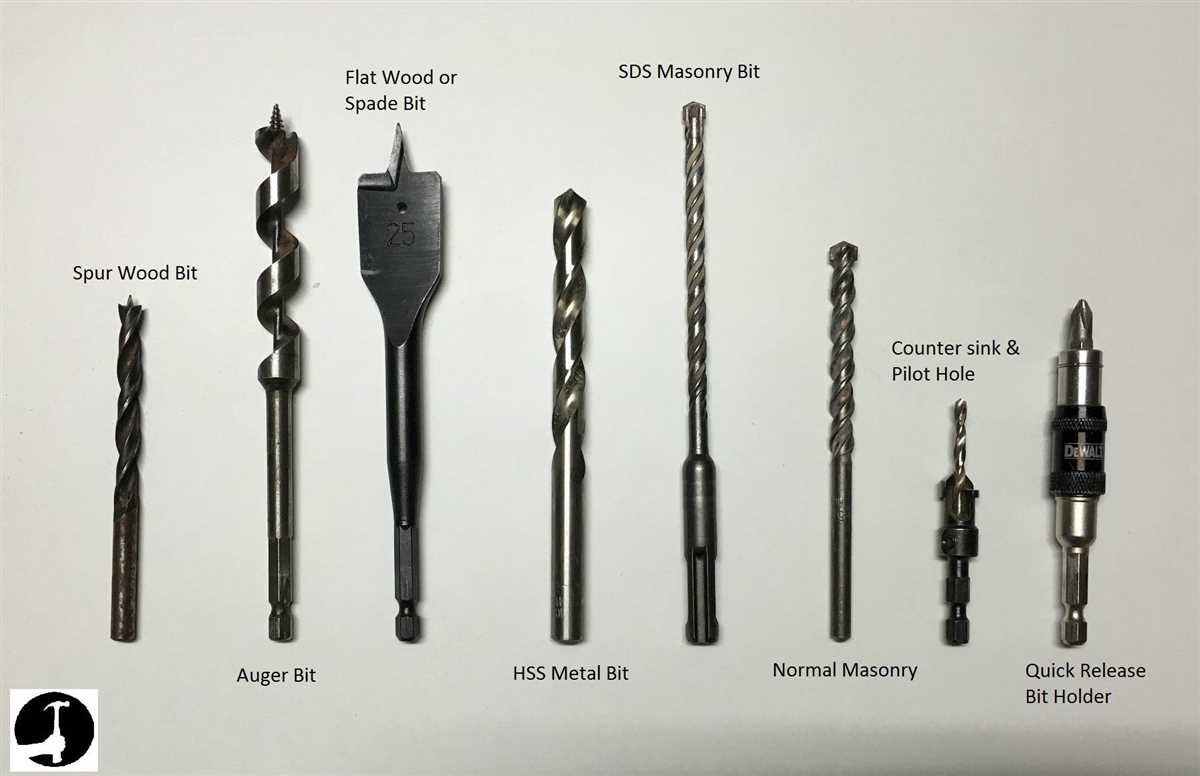
Masonry drill bits are designed for drilling through tough materials such as concrete, brick, and stone. They have a special, hardened tip that allows them to penetrate these materials effectively. Here are some tips and tricks to help you use masonry drill bits more efficiently and safely:
1. Choose the Right Size
Make sure to select a masonry drill bit that is the appropriate size for the hole you need to drill. Using the wrong size can lead to less accurate holes or even damage to the bit or the material you are drilling.
2. Use a Hammer Drill
When drilling into tough materials like concrete, it is often helpful to use a hammer drill. These drills have a special function that creates a hammering motion as the drill bit rotates, helping to break up the material and make drilling easier.
3. Start with a Pilot Hole
If you are drilling a large hole, it can be helpful to start with a smaller pilot hole. This will help guide the larger masonry drill bit and prevent it from slipping or wandering off course.
4. Use Water for Cooling
Drilling into tough materials can generate a lot of heat, which can damage both the drill bit and the material you are drilling. To prevent overheating, you can use water to cool the drill bit as you work. Simply dip the bit in water occasionally or have a steady stream directed at the drilling area.
5. Apply Steady Pressure
When drilling with a masonry drill bit, it is important to apply steady, even pressure. Avoid pushing too hard, as this can cause the bit to become stuck or break. Instead, let the drill bit do the work and maintain a consistent level of pressure.
6. Clean the Bit Regularly
As you drill, dust and debris can accumulate on the masonry drill bit, reducing its effectiveness. It is important to clean the bit regularly to ensure optimal drilling performance. Use a wire brush or compressed air to remove any buildup.
7. Use a Depth Stop
If you need to drill holes to a specific depth, consider using a depth stop attachment. This will prevent the masonry drill bit from drilling too deep and help you achieve accurate, consistent depths.
8. Wear Safety Gear
Always prioritize safety when using masonry drill bits. Wear safety glasses to protect your eyes from debris, and consider wearing a dust mask or respirator if working in a dusty environment. Additionally, use gloves to protect your hands from injury.
By following these tips and tricks, you can ensure that you get the most out of your masonry drill bits and achieve precise, professional results. Remember to always read and follow the manufacturer’s instructions for your specific drill bit to ensure safe and effective use.
Maintenance and Care of Masonry Drill Bits
Masonry drill bits are essential tools used for drilling holes in various masonry materials such as concrete, brick, and stone. To ensure they perform optimally and have a longer lifespan, proper maintenance and care are necessary.
1. Clean the Drill Bits After Use
After drilling, it is important to clean the drill bits to remove any debris or dust that may have accumulated. This can be done by using a wire brush or a toothbrush to gently scrub the bit. Avoid using water as it can cause corrosion.
2. Check for Damage
Regularly inspect the drill bits for any signs of damage, such as chipping or dullness. Damaged bits should be replaced immediately to ensure safe and effective drilling.
3. Sharpen Dull Bits
If a masonry drill bit becomes dull, it can be sharpened using a grinder or a sharpening stone. Follow the manufacturer’s instructions and take caution to avoid excessive heat buildup during the sharpening process, as this can damage the bit.
4. Store Properly
When not in use, masonry drill bits should be stored in a clean and dry area. It is advisable to use a designated case or container to prevent them from getting damaged or misplaced. Avoid storing them with other tools that may cause them to become dull or chipped.
5. Use the Right Drill Speed
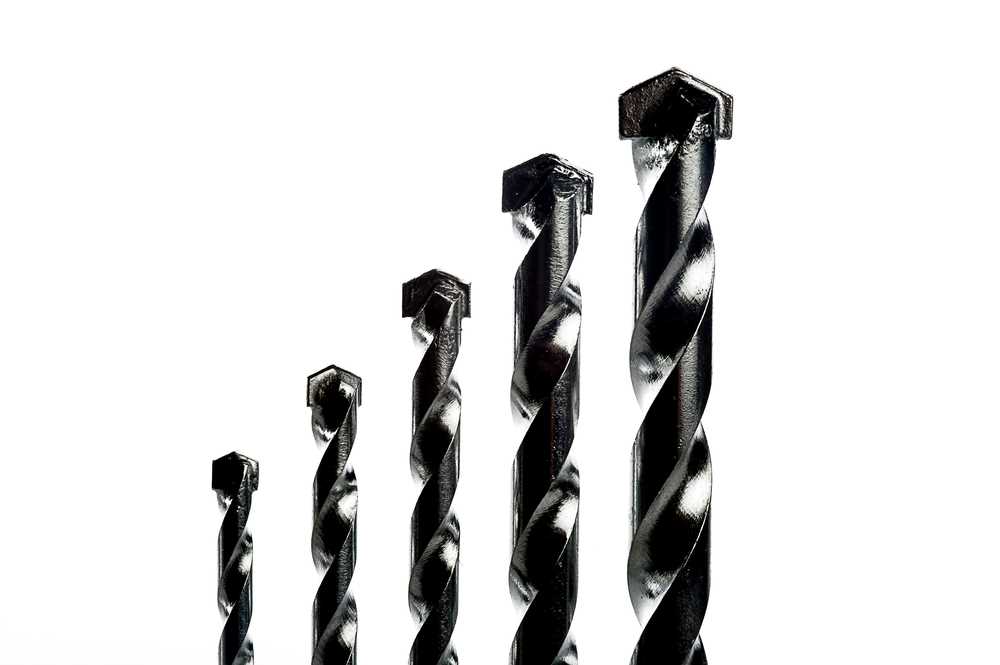
Using the correct drill speed is crucial for maintaining the effectiveness of masonry drill bits. Consult the manufacturer’s recommendations or refer to the drilling material’s specifications to determine the appropriate speed setting.
6. Use Lubrication
When drilling through dense masonry materials, it can be useful to apply a lubricant to the drill bit. This helps reduce friction and heat buildup, which can prolong the lifespan of the bit.
7. Avoid Excessive Pressure
Excessive pressure while drilling can cause the masonry drill bits to wear out faster. Apply consistent and steady pressure, allowing the bit to do the work without forcing it.
By following these maintenance and care tips, you can ensure that your masonry drill bits remain in good condition and deliver optimal performance for your drilling needs.
FAQ:
What are masonry drill bits used for?
Masonry drill bits are used for drilling into hard materials like concrete, brick, and stone. They are specifically designed with a carbide tip to effectively penetrate these materials.
Can I use a regular drill bit on masonry?
No, using a regular drill bit on masonry would not be effective. Regular drill bits are not designed to handle the hardness of materials like concrete or brick. It is important to use specifically designed masonry drill bits for these types of projects.
What sizes do masonry drill bits come in?
Masonry drill bits come in various sizes, typically ranging from 1/8 inch to 1 inch or more. The size you choose will depend on the specific requirements of your project.
How do I choose the right masonry drill bit?
Choosing the right masonry drill bit depends on several factors, including the type of material you are drilling into and the size of the hole you need. It is important to match the drill bit’s size and type to your specific project to ensure efficient and effective drilling.
Can masonry drill bits be used on wood?
Masonry drill bits are specifically designed for drilling into hard materials like concrete, brick, and stone. While they may be able to drill into wood, it is not recommended as they are not designed for this purpose. It is better to use regular wood drill bits for drilling into wood.
Video:










